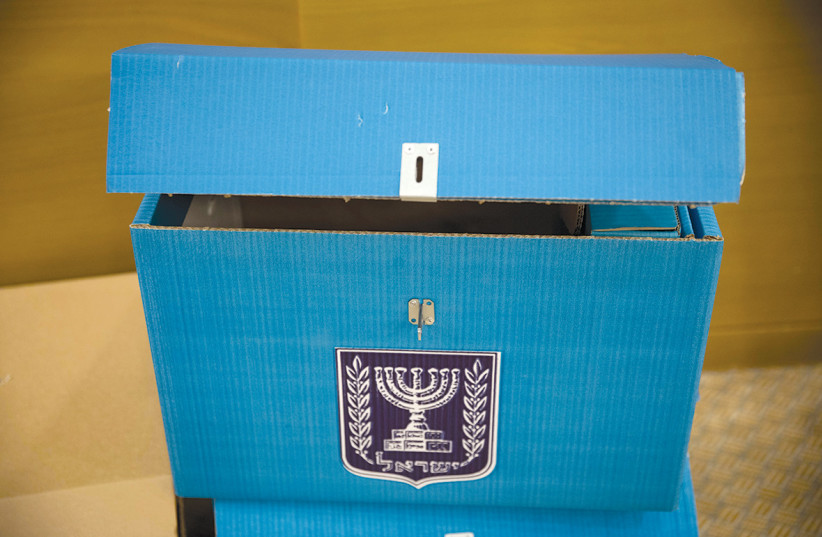Municipal elections are here again. This long-standing practice comes every five years and sees Israelis in the polling booths once again, this time to cast their ballots for their local heroes.
These elections have been notoriously different to those for representation in the Knesset. Party lines are split far differently, simply because national policies and the issues dealt with day-to-day are worlds apart. But this does not make local elections any less exciting or interesting.
First, and most obviously, this is because it is a day off for most people. It’s a relatively new practice that has turned election days – not always the most welcoming of days – into mini-staycations. You go to vote, cast your ballots, and go to the zoo or the park with your kids.
Secondly, and more directly, election days are when we citizens have the most significant impact on the issues that affect our lives. While, after so many repeat national elections, Israelis are sick and tired of this recurring ritual, it is nevertheless important not to overlook the importance of such a day.

But this municipal election comes at a more complex time than any we have faced in decades; it comes in the middle of a war.
Initially scheduled for October 31, the municipal elections were first pushed off to January 30 and, soon after, they were delayed again – to today.
The war will be a significant factor in the decision-making process when it comes to national elections, but the question remains: how will it impact local councils?
The locales most clearly affected are the 14 that will not be holding elections because their residents have been forced to evacuate. But even those that are holding elections are likely to experience a change in voter trends, though the direction is not yet apparent. It seems, however, that the focus has shifted mainly to welfare, living conditions for IDF soldiers and reservists, and, of course, the hostages being held by Hamas.
Municipal election overshadowed by war
Meanwhile, the topics at the forefront of the localities’ focus – education, infrastructure, services, transportation, and so on – have been shunted into an obscure and murky background.
There is a sense, too, that Israelis are far less motivated than usual to vote while the fighting is still going on.
“I anticipate that voter turnout this time will be even lower than usual due to diminished motivation among the populace,” said Prof. Osnat Akirav, head of the Political Science Department at Western Galilee College, in an interview this week with Maariv’s Dudi Fatimer.
“Add to that the grim reality of numerous hostages still being held in Gaza; entire families are in mourning, and every day, more soldiers are being killed. Overall, the prevailing mood is far from celebratory.
“While holding elections remains crucial for democracy, boosting voter participation will indeed demand innovative approaches.”
Nevertheless, the importance of such elections must not be lost on us, especially in times of crisis. It is the local authorities that coordinate with police how to manage security within cities, and it is those security systems that function under the leadership of local authorities in Israel’s South that ultimately defended those communities on October 7.
It was also the municipalities throughout the country that ultimately managed the influx of evacuees from the Gaza and Lebanon borders. They experienced a massive surge in public demand, with municipal call centers seeing more than a 600% rise in calls.
“What we have witnessed recently is a significant failure on the part of the central government, contrasted by the flourishing performance of local authorities,” said Prof. Itai Beeri, head of the Center for Public Management and Policy at the University of Haifa.
A lot of Israel’s future is currently unclear, now more than ever. How our lives will change, especially on a day-to-day basis, will affect and be affected by our local leaders, so today is perhaps more important than any previous municipal election in recent times.
So even if it is challenging, even if it’s the last thing you want to do today, go out and vote. Israel needs you now, more than ever. Make your voice heard, ensure that these local elections are a valuable event for the country and for the future of the Jewish state.
